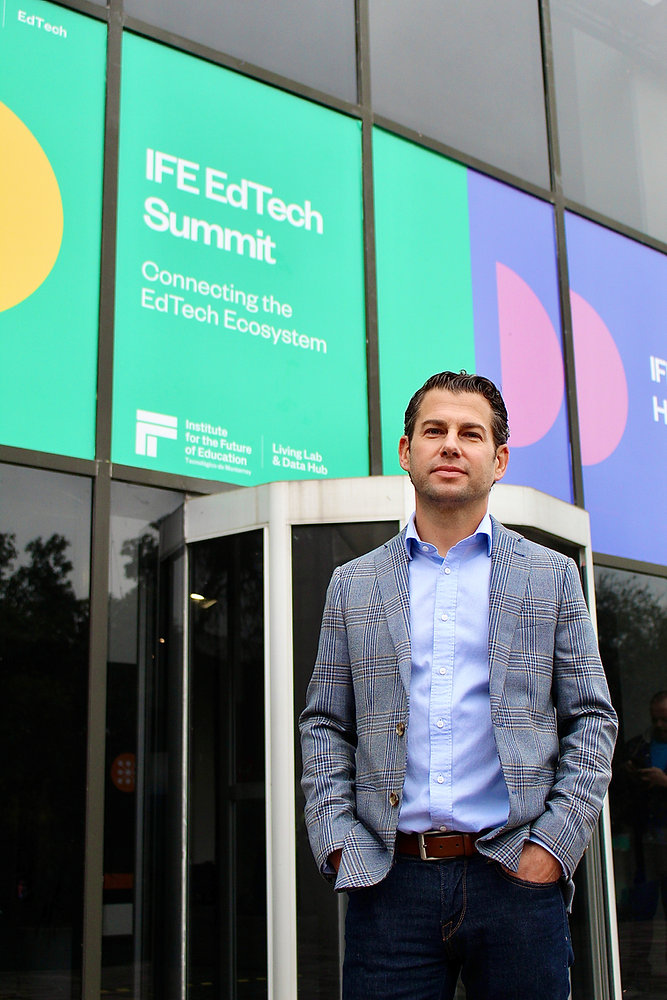
The Conference Playbook: How to Turn Connections into Clients
Are Conferences Helping Your Business—Or Just Wasting Your Time?
A few months ago, I was talking to an EdTech founder who had just wrapped up a big industry conference.
They spent weeks preparing—booking flights, setting up their booth, finalizing their pitch. They shook hands with decision-makers, had great conversations, and walked away thinking, this was a success.
In the long run, it was the kiss of death for their conference strategy.
❌ No follow-ups turning into deals—just radio silence.❌ No real sales pipeline—only names on a list with no next steps.❌ Just a stack of business cards from people who seemed interested but have disappeared.
It happens all the time in education sales. Businesses pour time, energy, and money into conferences, expecting deals to roll in immediately, only to realize—business cards aren’t contracts.
Here’s the real truth: Conferences aren’t designed for instant sales.
They’re a slow burn strategy—one of those long-term business plays that education companies either execute poorly or fail to execute at all.
But when done right, they become one of the most effective ways to refine your messaging, build credibility, and open doors for future deals.
1️⃣ Why Most Education Companies Get Conferences Wrong
The mistake? They think showing up is enough.
They assume if they book a booth, slap their logo on some brochures, and have a few good conversations, business will naturally follow.
🚫 They pitch too hard, too fast. 🚫 They assume interest means intent to buy. 🚫 They collect contacts but don’t create connections.
💡 The best companies go into conferences NOT to sell, but to test their messaging in real conversations with decision-makers.
It’s like being on a bad first date—you don’t propose marriage 20 minutes in. You get to know the person, figure out if there’s a real connection, and let things evolve naturally.
Conferences are no different.
If you walk in expecting to close deals, you’ll leave disappointed. If you go in expecting to learn, listen, and refine your positioning, you’ll walk away with something even more valuable—a stronger business strategy.
2️⃣ Are You Even at the Right Conference? (Most People Aren’t.)
Here’s something people don’t talk about enough—a lot of education businesses waste time at the wrong events.
Not every conference is created equal. If your ideal clients aren’t in the room, why are you?
I’ve worked with companies that would attend every possible education event, thinking more exposure meant more deals. Instead, they burned through their budget and had nothing to show for it.
💡 Before you register, ask yourself: ✅ Does this event attract my target audience? ✅ Are my ideal clients attending, or just other vendors? ✅ Are the right decision-makers there—superintendents, school leaders, district buyers?
Attending the wrong event = wasted money.
If the right people aren’t in the room, you’re spending thousands just to have conversations that won’t go anywhere.
There’s no gold star for attending the most conferences—only for attending the right ones.
3️⃣ Conferences Aren’t About Selling. They’re About Listening.
The companies that fail at conferences talk too much. The ones that win? They ask the right questions.
I’ve sat in on conversations where education founders spend 10 minutes pitching a product before even asking what the other person does.
That’s why they walk away with nothing.
💡 If you just listen, people will open up to you.
When you see which parts of your pitch make people lean in—and which parts make them check their phone—you know what’s working.
Try this instead:
✅ Ask about their biggest challenge right now. ✅ See what their response tells you about their priorities. ✅ Match your message to what actually matters to them.
The best education companies use conferences to learn how to position themselves better.
4️⃣ The Slow Burn Strategy: Why Conferences Take Time to Pay Off
Most education businesses expect too much, too fast.
Conferences are NOT: 🚫 A place to close deals on the spot. 🚫 A guaranteed lead-generation event. 🚫 A one-and-done opportunity.
Conferences ARE: ✅ A place to refine your messaging. ✅ A chance to build credibility and trust. ✅ A long-term play where the relationships you build today pay off months (or years) later.
💡 The education companies that win at conferences don’t just show up. They show up with a plan.
5️⃣ How to Make Conferences Actually Work for Your Business
Instead of: 🚫 Going in expecting to sell → Go in to test your messaging. 🚫 Talking about yourself first → Ask about their needs first. 🚫 Collecting business cards → Set up follow-up conversations before you leave the event.
🔥 Get specific about next steps. “I’d love to follow up with you on this. Can we set up a quick call next week?” 🔥 Send a personalized message, not a generic one. Reference exactly what you discussed. 🔥 Offer something valuable. A case study, a webinar invite—something that keeps the conversation going.
💡 If you aren’t getting ROI from conferences, it’s not the conference. It’s your approach.
Final Thoughts: If You’re Not Walking Away with Real Opportunities, You’re Doing It Wrong
Conferences aren’t just networking events. They’re positioning platforms.
💡 Go in with a game plan. 💡 Have intentional conversations. 💡 Follow up with a purpose.
That’s how you turn conferences into lead-generation machines.
🎧 Want the full breakdown? Listen to the latest episode of Breaking the Grade
👉 Apple
👉 Spotify
📩 What’s your conference strategy? Drop your thoughts in the comments—I’d love to hear what’s working for you.